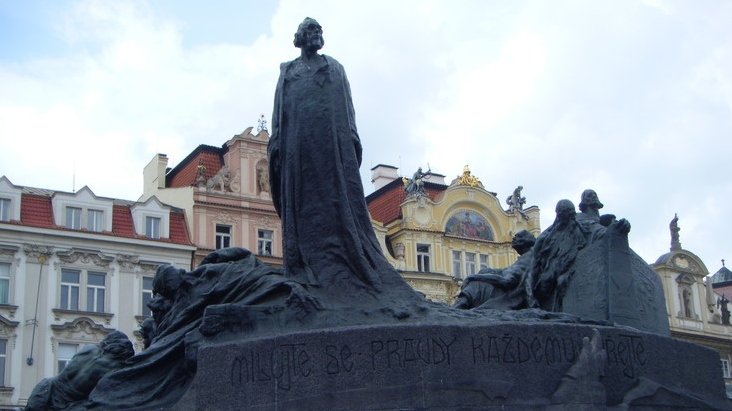Hus arrived in Prague as a young man and supported himself by singing and working in churches. He later received theological degrees and was ordained a priest in 1400. A mere two years later he was appointed rector of the university. Trouble began brewing when he translated and distributed documents by Wyclif, which were soon deemed heretical by the Pope. The works condemned church abuses which he believed were not in keeping with the tenets of Christianity. Hus obeyed the papal edict for a time, but gained an important ally in the form of King Wenceslas (not the first Wenceslas, the patron saint of Czech lands) who was also in favour of Wyclif’s ideas.

In keeping with medieval tradition, Hus posted his latest treatise on the doors of the Bethlehem Church which did not go unnoticed by his rivals. He was summoned to appear before the Council of Constance to defend his views and did so at his peril. He was tried, found guilty of heresy and burned at the stake on 6 July, 1415. Today, a monument to Jan Hus occupies prime real estate in Old Town Square and Czechs are given a day off on the anniversary of his death each year.




Comments